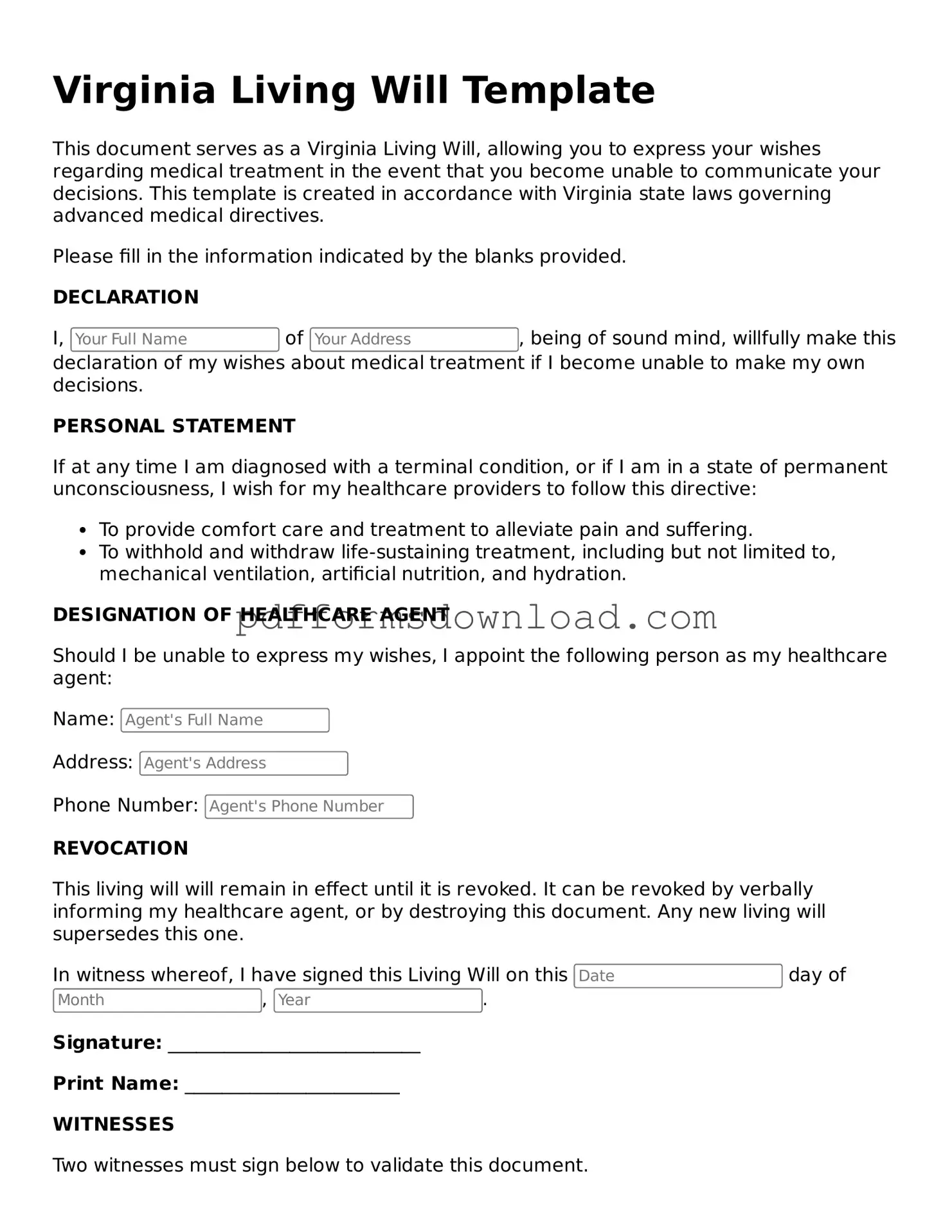What is a Virginia Living Will?
A Virginia Living Will is a legal document that allows individuals to express their wishes regarding medical treatment in the event they become unable to communicate their preferences. This document specifically addresses end-of-life care and outlines what types of life-sustaining treatments an individual does or does not want in certain medical situations.
Who should consider creating a Living Will?
Anyone over the age of 18 should consider creating a Living Will. This is especially important for individuals with serious medical conditions, those undergoing major surgeries, or anyone who wants to ensure their healthcare wishes are honored. Having this document in place can relieve loved ones from the burden of making difficult decisions during stressful times.
What are the key components of a Living Will?
A Living Will typically includes specific instructions regarding medical treatments, such as resuscitation efforts, mechanical ventilation, and tube feeding. It may also designate a healthcare proxy, someone who can make decisions on your behalf if you are unable to do so. Clear and concise language is essential to ensure that your wishes are understood.
How do I create a Virginia Living Will?
To create a Virginia Living Will, you can either draft the document yourself or use a template. It's important to ensure that it meets Virginia's legal requirements. After drafting, the document must be signed in the presence of two witnesses or a notary public. The witnesses cannot be related to you or entitled to any portion of your estate.
Can I change or revoke my Living Will?
Yes, you can change or revoke your Living Will at any time as long as you are mentally competent. To revoke the document, you can simply destroy it or create a new Living Will that explicitly states that it replaces the previous one. Informing your healthcare providers and loved ones about any changes is crucial to ensure that your current wishes are known.
Is a Living Will the same as a Power of Attorney?
No, a Living Will and a Power of Attorney serve different purposes. A Living Will focuses on your medical treatment preferences when you are unable to communicate. In contrast, a Power of Attorney grants someone the authority to make financial or legal decisions on your behalf. Both documents can work together to provide comprehensive planning for your future.
Where should I keep my Living Will?
Store your Living Will in a safe but accessible place. It's advisable to provide copies to your healthcare providers, family members, and anyone designated as your healthcare proxy. Additionally, consider keeping a copy in your medical records to ensure it is readily available when needed.

